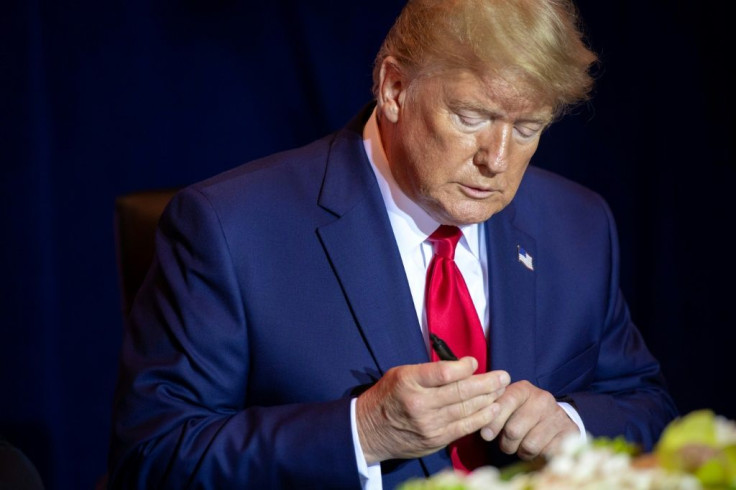Trump Moves To Punish Tech Giants, Signs Executive Order To Strip Social Media Libel Protections

KEY POINTS
- As of mid-April, a Washington Post tally showed Trump had made 18,000 false or misleading statements since taking office
- Twitter CEO Jack Dorsey said labeling a tweet with a fact-check does not make Twitter an "arbiter of truth"
- Trump wants to undo protections granted in the early days of the internet
President Trump on Thursday signed an executive aimed at curbing immunity from libel for social media companies. The action is in retaliation for Twitter’s decision to label two of his tweets with a fact-check.
Trump had claimed expansion of absentee balloting would lead to widespread vote fraud, an allegation that has been debunked by studies. He called the fact-check an “editorial decision.”
We also wanted to provide additional context and conversation with regard to voter fraud and mail-in ballots. We have a range of remediations, and in some cases we add labels that link to more context. https://t.co/k6OkjNXEAm
— Twitter Safety (@TwitterSafety) May 28, 2020
Trump accused Twitter of interfering in the 2020 election.
“We’re fed up with it,” said Trump, who is under constant fact-checking by various media outlets. As of mid-April, the Washington Post tallied 18,000 false or misleading claims made by the president since he took office.
Twitter CEO Jack Dorsey tweeted Wednesday that Trump’s posts were misleading and pointing that out does not make Twitter an “arbiter of truth.”
This does not make us an “arbiter of truth.” Our intention is to connect the dots of conflicting statements and show the information in dispute so people can judge for themselves. More transparency from us is critical so folks can clearly see the why behind our actions.
— jack (@jack) May 28, 2020
Trump said he was calling for new regulations to undo the protections granted in the early days of the internet known as Section 230, which treats them as platforms rather than publishers.
“Social media companies that engage in censorship or political conduct cannot keep their immunity,” Trump said in signing the order, flanked by Attorney General William Barr.
The order directs the Federal Communications Commission, the Federal Trade Commission and other federal agencies to determine whether they can apply new rules that could open the way for punishing Google, Facebook and Twitter for the way they police content online. Conservatives have long complained the internet giants suppress conservative views.
Trump portrayed his action as an attempt to eliminate political bias.
“We’re here today to defend free speech from one of the greatest dangers,” Trump said at the signing.
The Washington Post reported tech sector advocates, lawmakers and legal experts questioned the legality of Trump’s proposed regulations or whether the government could enforce the order.
“This is simply setting the wheels of law enforcement and regulation in motion against a private company for questioning the president,” Matt Schruers, president of the tech industry trade group Computer and Communications Industry Association, told the Post.
© Copyright IBTimes 2025. All rights reserved.






















